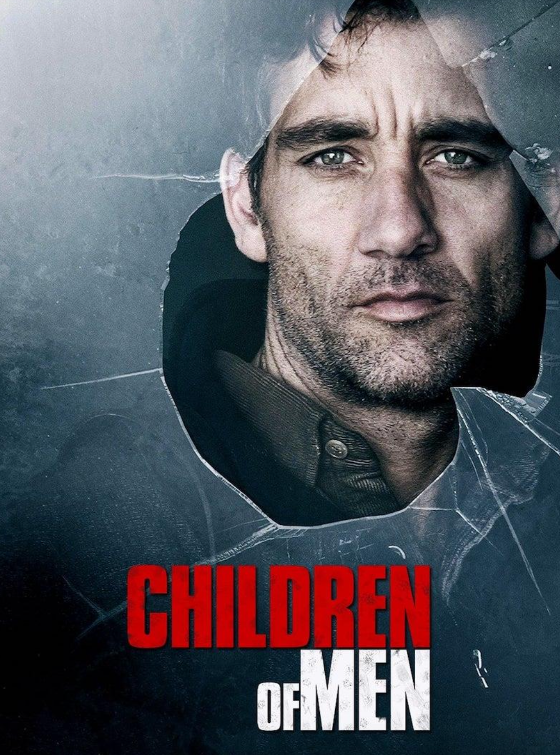The research groups CRAFT and ENCODE (both UiT) invite to the screening of Alfonso Cuarón's science fiction film Children of Men (UK 2006) at Verdensteatret Cinematek on Tuesday, October 22 from 18:00.

Slavoj Žižek once remarked that the most efficient way for a film to launch political criticism is not by approaching its subject head-on. Rather, the Slovenian philosopher explains, it should make the issues worthy of critique background features that become visible and palpable only at times and that remain seemingly unimportant for the main storyline of the film. What is critiqued in this manner, Žižek continues, is not directly and consciously processed by audiences, but attains a haunting quality – it can suddenly reemerge in different contexts and colors the political vision and practice of subjects.
Alfonso Cuarón's science fiction film Children of Men (UK 2006) seems to have taken this advice seriously. The film is set in a fictitious year 2027 in a world where the last child had been born 18 years ago. It is based on a novel by P.D. James with the same title from 1992 that addresses the themes of hope, despair, and political engagement.
The film's story plays out in the UK – one of the last areas on the planet where an (admittedly authoritarian) government still retains some form of order in a world without children making the country a destination for refugees, migrants, and human traffickers. Main protagonist Theo Faron (Clive Owen) is tasked by his ex-wife and now alleged terrorist leader Julian (Julianne Moore) to smuggle a miraculously pregnant woman to a sanctuary located somewhere at sea. During this journey, the protagonists are being pushed through various refugee camps, detention centres, rendition sites, and ghettos. While the overt story line is interesting enough and absolutely capable of capturing and holding audiences' attention throughout the film's 110 minutes, it is this iconography of exclusion that gives the film's vision its politically subversive charge making it relevant for today's debates about deadly borders around fortress Europe and Western lenience towards and tacit support for the massacres in Gaza, Beirut, and countless other (conveniently unremembered) spots on the planet.
Alfonso Cuarón offers viewers a tour-de-force of historical zones of the exception. The film's aesthetics and photography draw implicit connections to famous sites ranging from the Warsaw ghetto via Northern Irish seclusion zones during the time of troubles, modern UK detention centres, and Guantanamo Bay. By these means, Children of Men's background draws an uncanny connection between the fictitious universe of the film and our present political condition making it a timely reminder of the carceral infrastructure of what Achille Mbembe has termed Western liberalism's thanatopolitics towards people in the global south.
Children of Men is visually stunning and has an engaging storyline. What stays with viewers, however, is a haunting iconography of everyday exception, exclusion, and death boiling underneath the thin veil of normality many well-meaning people in as yet affluent and stable societies still take to be the world.
Holger Pötzsch (UiT) will give a short introduction. Time for q/a and discussion after the film.
Tickets and trailer available at VT's website.
The screening is an initiative of the CRAFT and ENCODE research groups at UiT. For earlier screenings in the series Future Perspectives, see here.